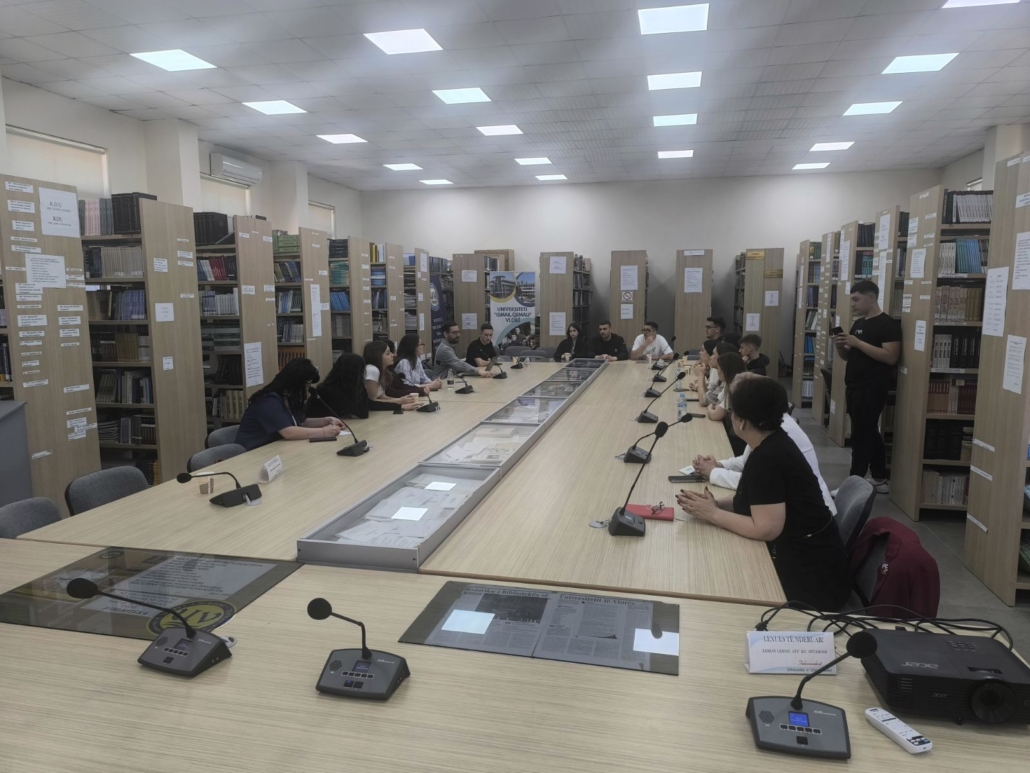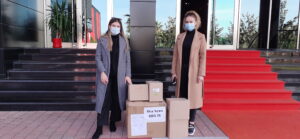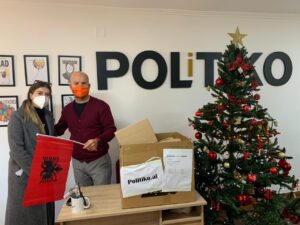By Loneta Progni
2020 has been a challenging year for journalists in Albania, who in addition to the pandemic have also faced attacks of various forms. Initially, a series of offensive words were used against journalists by the Prime Minister Edi Rama himself, such as: cauldrons, cadres, pigs, villains, unread, lazy, liars, parasites, etc. At least 12 journalists were directly attacked, escorted to police stations while they were doing their job, raped, their apartments or vehicles were attacked, etc. These events have provoked international reactions from Reporters Without Borders, Mapping Media Freedom, the International Press Institute, etc.
Various international organizations have criticized Albania in recent years, regarding the freedom of the media and the relations of the authorities in relation to journalists. Below we bring to the attention of journalists who have been detained, attacked, raped during the past year.
On the evening of December 10, on the second day of protests after the murder of 25-year-old Klodian Rasha by the Eagles, Ora News journalist Xhoi Malësia was detained by the police while he was on a live broadcast. The journalist also denounced the violence against him at the police station. Reporters Without Borders called for an independent investigation into the police’s abusive behavior.
“The feeling of being detained for me was an unprecedented experience, whether as a journalist or an ordinary person. It was a big mistake in all possible procedural aspects; an extremely serious action in accessing fundamental rights and freedoms.
My case is being represented by the Albanian Helsinki Committee. Currently, however, we face several “fronts” of justice. First, we filed a criminal report with the Tirana Prosecutor’s Office, where we claim that several criminal offenses were committed throughout the incident. Among the most important are “abuse of office” and “unlawful deprivation or obstruction of liberty”. Secondly, we are facing at the administrative level at the Internal Affairs and Complaints Service (CIA) at the State Police. There we allege procedural violations by police officers. And third, after concluding these two steps, we will file a civil lawsuit claiming civil and moral damages. The fourth step, if our justice will not provide an answer that we consider necessary, will be the lawsuit in the European Court of Human Rights (Strasbourg Court). This institution has handled similar cases and has a sufficient precedent for handling my case “, says Malësia.
Another act of violence during the December protests was committed by the police against the journalist and editor-in-chief of the newspaper Koha Jonë, Qamil Xhani. The aggression against Xhani was done while he was doing his job as a journalist very close to his editorial office. The arrest, handcuffing and ill-treatment of Xhani was also condemned by the Albanian Media Council as a disturbing signal that the police no longer respect any democratic standard, where the basic one is to allow free reporting from the field and not to harass journalists on duty.
The morning of October 30, 2020 marked another shocking event, after a quantity of explosives exploded in the courtyard of the house of the journalist of Nea 24 in Lezha, Elidon Ndreka. Thankfully there were no injured persons, but only material damage. Ndreka connects the event with the task he has been exercising for years as a field journalist, as he emphasizes that he and his family do not have personal conflicts.
On August 14, 2020, Ora News published the messages, which according to them, were sent to the phone of the president of “Yldon Media Group”, Ylli Ndroqi by the mayor Erion Veliaj. What stands out in these messages are the constant insults and threats against the journalist and the then director of information on this television, Beti Njuma. “I do not forgive her, we will be here.” “I cooperate with you, not with the idiot you got.” “You let a beast come in between us.” “A lot of courage after all.” These are just some of the messages where the journalist’s name appeared, and among other things there was pressure to change the editorial line.
On June 17, 2020, Report TV journalist Elvis Hila was escorted by police while reporting on the IKMT action in Shengjin, where several illegal constructions were demolished. The journalist denounced that the Chief of Order at the Lezha police station, Agron Qullhaje, took his phone and the police escorted him to the police station. According to Hilë, the chief of order Agron Qullhaje checked the journalist’s phone, violating his privacy.
May 17, 2020, after the collapse of the National Theater, marked another moment which provoked many reactions in Albania and abroad: violence against journalist Alfred Lela. Videos circulated in traditional and online media clearly showed the rape and escort of the journalist.
‘Mapping Media Freedom’ which has focused on the restrictions, threats and violations that affect media professionals in Europe, while they do their job, has reflected the arrest of the director of Politiko.al, Alfred Lela during the protest against the demolition of the National Theater. Through this reaction he condemned the arrest and called for public pardon. Similar reactions were posted by the International Press Institute and many national and international organizations. On the other hand, Prime Minister Edi Rama publicly denied the violence exercised by the police against the journalist.
After the demolition of the National Theater, episodes of violence and insults were recorded against reporters and field operators, including Report TV operator Mirsald Hajdarmataj, who was severely beaten and insulted by police.
On April 25, 2020, the road officer who was later suspended from duty Anxhelo Bardhi, accompanied by one of his friends, raped the journalist of Fier Xhoen Osmënaj, damaging his car.
March 10, 2020 marked another arbitrary escort to the police station by the police against Fax News journalist Bekim Bici. The European Center for Press and Media Freedom reacted to the illegal escort of journalist Bekim Bici, seeking clarification from the Albanian authorities. The Vienna-based International Media Institute also joined the reaction. On January 14, 2020, the car of the Lezha journalist, Gjergj Figuri, was deliberately attacked.
Will 2021 be the end of pandemic and also violation of freedom of speech?








